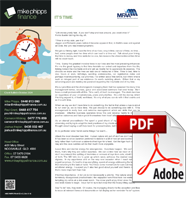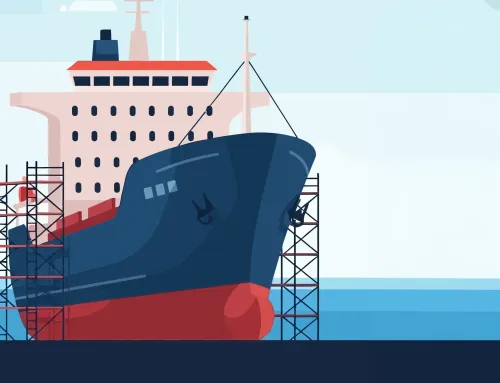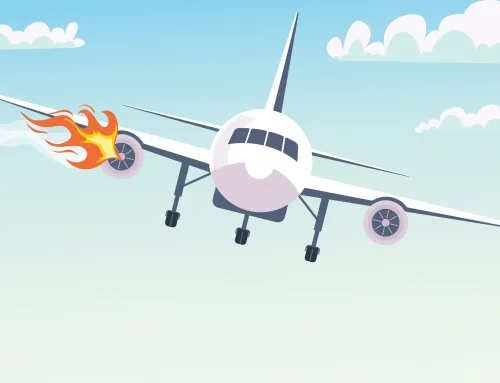"Life moves pretty fast. If you don't stop and look around, you could miss it."
Ferris Bueller during his day off.
"Time is on my side, yes it is."
Jagger and Richards years before it became apparent that, in Keith's case and against all odds, the lyric was indeed prophetic.
We get our timing right, have the time of our lives, sing in time, run out of time, do time… hell, some people even two time which can lead to a time out. Talk about poor timing. But time is money and time waits for no one, two lessons the aforementioned two timer will no doubt learn.
Time. Surely the greatest invisible force in our lives and the most prevailing influencer. For me the great mystery is that time foretells our arrival and departure from this life, ticking toward the inevitable end and yet we mostly fail to appreciate its essence. The choices we make and the lives we lead are all measured in time. Time to bed, time to rise, hours at work, birthdays, wedding anniversaries, car registration dates and perhaps most importantly, our priorities. I've written about this before, but I think time is such an integral part of our existence it's worth revisiting afresh. Either that or my advancing years are making me paranoid regarding the inevitable end of my time.
It's our priorities and the challenges in managing them that has spawned the many time management tomes, courses, gurus and associated seminars that exist today. But I have a small problem with all this. Time can't, of itself, be managed. The clock marches on regardless of your circumstances, plans and priorities. It's a bit like money, which I've long argued is, of itself, worthless. It's only what you can do with it that counts and so it is with time.
When we say we don't have time to do something, the fact is that unless a bus is about to run over us, we do have time. We just choose to do something else with it. Time management is really task and outcome management which are skills that can be mastered. Effective business operators know this and develop habits to maximise positive outcomes and future proof themselves from heart attacks and stress.
As an eternal procrastinator I've spent a good chunk of my time on earth thus far observing and trying to adopt the best practices of my clients and colleagues. I've even thought about buying a self-help book for procrastinators, but I can't decide which one.
In no particular order here's some things I've learnt…
Attack the most dreaded task first. Human nature will put off stuff we don't want to do. It has been so since cavemen preferred to dabble in a bit of rock art and cuddle his cave lady rather than hunt down a sabre-toothed tiger for a feed. Get the tiger hunt out of the way and the cave cuddles will be that much more enjoyable.
Leave time and mental energy for emergencies. Surprises happen. We can't control them, that's why they are called surprises. We can control how we react of course. I don't recommend the spitting of dummies or removal of toys from cots, albeit I'm guilty of both. The MD tells me to grow up which rarely achieves the desired result, but I digress. In my experience and on the very rare occasion when I react maturely to urgent surprises, it's best to drop everything, spend all energy addressing the issue and then returning to the task at hand. You'll lose some momentum for sure but maybe little emotional energy. I suspect you'll also feel good about yourself and there's not much that's more important than that.
Prioritise importance. A fun job is not necessarily a priority. The natural enemy of the terminally disorganised procrastinator, the enjoyable noncritical task lies waiting like a tempting dry white at a mid-week lunch. You know you'll enjoy it but once it's over the real work needs to begin. Have fun for sure but know that the heavy lifting awaits.
Use "to do" lists, they work. Of course, the managing director is the exception and likes to leave all relevant items and documents on full display as her reminder "to do" system. It works for her but for most people a crowded and untidy desk or workplace leads to a crowded and untidy mind where every task is in full view and crying for attention. Better to have a little list and enjoy the satisfaction of ticking off jobs as they are completed. The "to do" regimen requires an organised filing system, either real or virtual, and a one job at time approach. This takes real discipline but make no mistake, you can't do two jobs at once and complete either effectively. In trying I can guarantee increased levels of stress and sub optimal outcomes. If "to do" stress is the goal, I recommend an international flight with the MD and an airline that runs out of champers, at which stage the list becomes quite focused, reduced in fact to life and death primeval urges.. find a chilled bottle of Moet or a parachute and jump. I jest, but here's the thing. Some people thrive on stress and perform amazingly when time is running out or outcomes are deadly serious. If you are one of the few, bless you. Please become an ambo or emergency room doctor (or, God forbid, a lawyer). For the rest of us, a methodical approach with appropriate time frames and deadlines allocated is recommended.

Know when your brain is at its best. For me it's nearly always after a very long liquid lunch at which point I am miraculously transformed and able to solve every issue, challenge, and task on my horizon. More often than not my dining companions agree most vigorously with my suggestions and usually add value by offering their own. Sadly, these visions desert me while sleeping and by the next morning there is little recall. Requests to colleagues for a summary of discussions go unanswered as they display similar signs of amnesia.
But seriously, some people work well in the early hours and some in the evening. Very few hit their straps immediately after lunch and almost no one is effective at the end of a 12-hour day with no breaks. My own experience suggests that exercise unlocks capacity to complete complicated tasks almost like a wonder drug. Not as good as real drugs of course, but beggars can't be choosers. We are all busy, so it takes a bit of discipline to walk away from the "to do" list and go for a swim, a walk or a ride. I reckon not only do you return to the job at hand with a refreshed mind set, but often the problem task comes into sharp focus during exercise. I think I've solved way more problems in the middle of some form of vigorous exercise than I have sitting at my desk. Get your minds out of the gutter you lot!!
So that's it. Hard tasks first. One job at a time. To do lists. Exercise. Reasoned approaches to emergencies.
And if all else fails, may I strongly recommend the long lunch. It will solve nothing, but you won't care.
BTW… I usually try and find a sage and life changing quote to end articles like this. In the case of time there are just too many great ones to choose. Instead, I thought I'd share this medical quote regarding the outcomes of exercise.
"Endorphins are chemicals (hormones) your body releases when it feels pain or stress. They're released during pleasurable activities such as exercise, massage, eating, and sex too. Endorphins help relieve pain, reduce stress and improve your sense of well-being"
I will leave it to you, dear readers, to create your "to do" list as you wish.
BTW #2… if you are old enough you will know why this article is titled as it is.
Mike Phipps F Fin
Director | Phippsfin Pty Ltd







